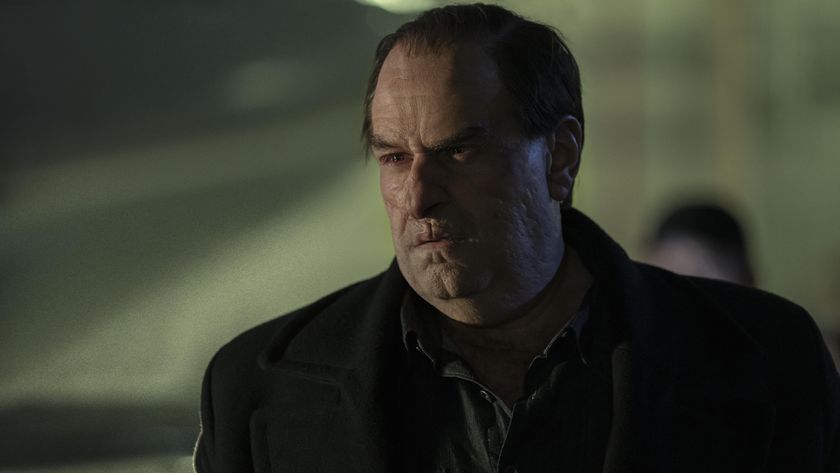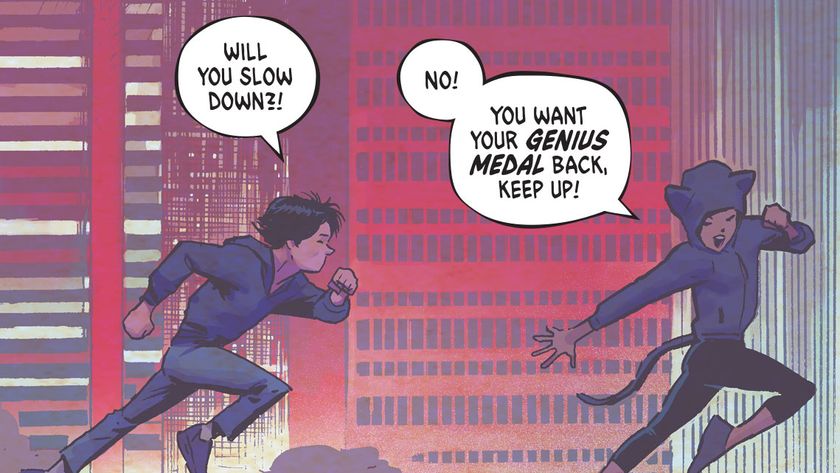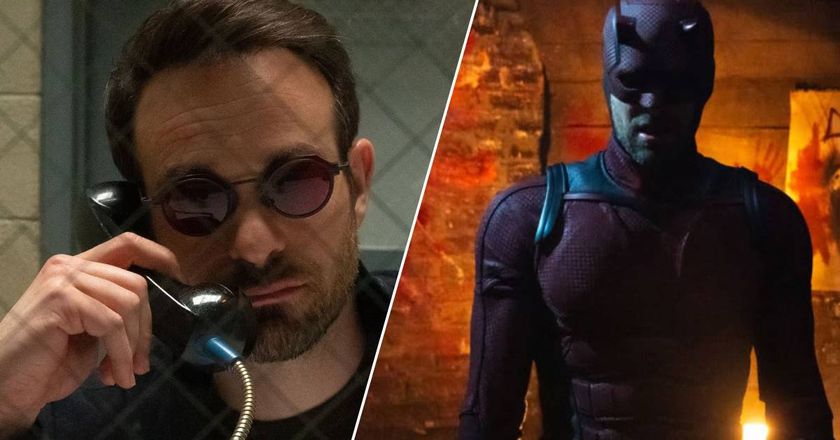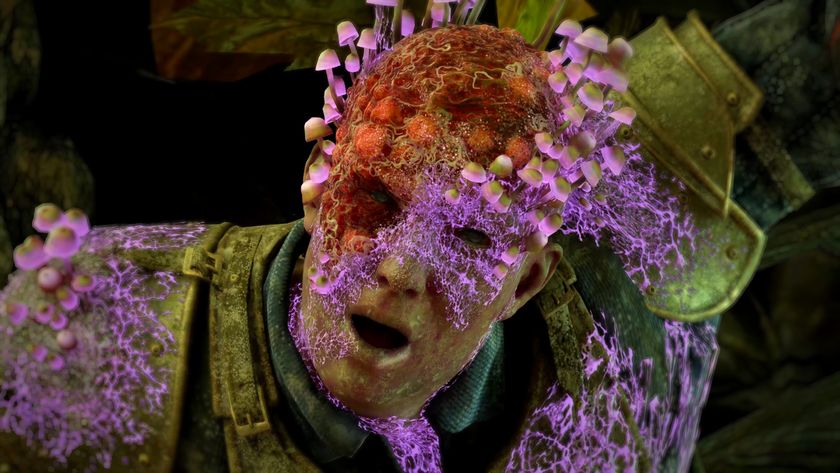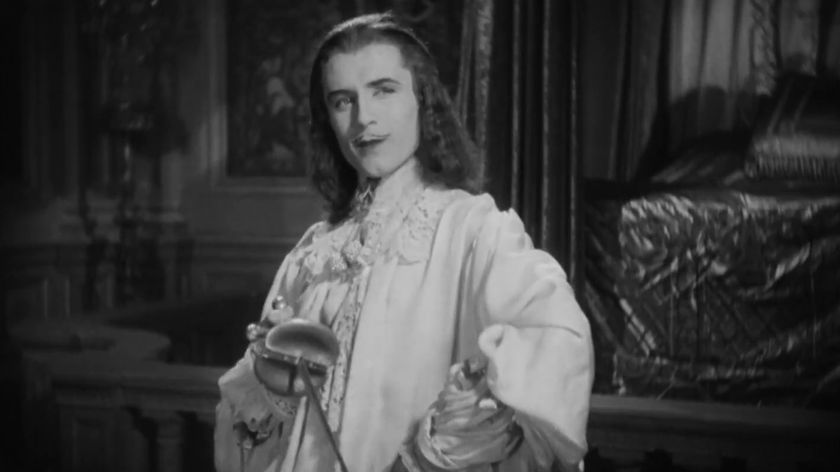With Sofia Falcone's story, Batman spin-off The Penguin offers an unexpected twist on the Joker and Harley Quinn's twisted romance
Opinion | Sofia's relationship with Dr. Rush calls back to Joker and Harley Quinn's origin story
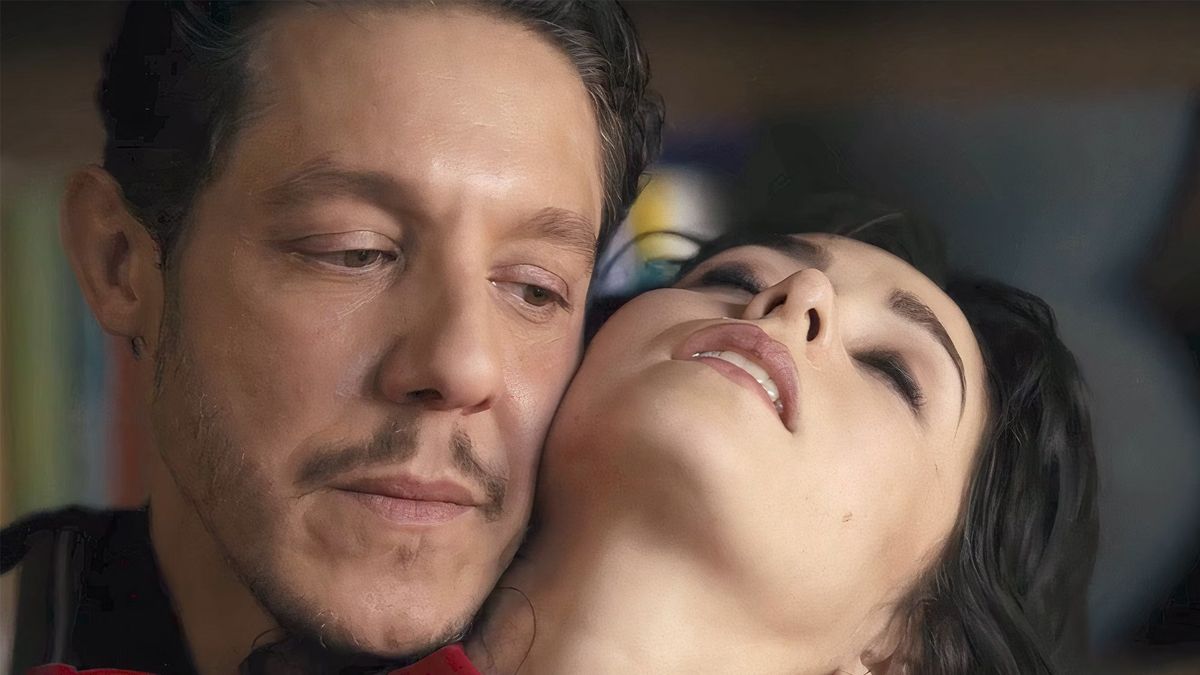
Warning: the following features mild spoilers for The Penguin episode 6.
"For ten years, men have lied to me," says Sofia Falcone (Cristin Milioti) in The Penguin's fourth episode. Her backstory hinges on a life-changing stint in Arkham Asylum, framed by her father for a series of murders he himself committed. More recently, she's been betrayed by her accomplice Oz Cobb, and threatened by the remaining leaders of the Falcone crime family. The question now is whether her one remaining ally, her therapist-turned-lover Dr. Julian Rush (Theo Rossi), can be really trusted. Does he want Sofia to thrive on her own terms, or is he just another unscrupulous manipulator?
Culminating in a BDSM scene this week, this relationship is a compellingly twisted detail in Sofia's storyline. And in a show that's generally light on Batman callbacks, it offers an unexpected remix of the Joker and Harley Quinn's origin story – a tale that began with the Joker as an Arkham patient, seducing his psychiatrist into a toxic romance.
A dark past

We first meet Rush as Sofia's therapist, comforting her after a traumatic flashback in episode 2. Once we learn how they first met, their intimate dynamic becomes significantly more unsettling.
During Sofia's time in Arkham, Rush assisted in her torture, standing on the sidelines while she screamed her way through brutal electroshock treatment. He eventually quit his job out of guilt, but this doesn't come across as a decision driven by morality. Arkham's environment was much the same before Sofia arrived, meaning that Rush surely participated in similar medical abuse toward other patients. Consciously or not, he singled Sofia out as a special case; an obsession that carries over to the present day, where he inserts himself into her life as a sympathetic confidant.
Visiting Rush during a moment of crisis in episode 4, Sofia pokes at his creepy motives. "You miss how it was at Arkham, don't you?" she teases, perversely flirtatious. "The control that you had. Rehabilitating me." When Rush objects, she implies that he now has her exactly where he wants her: unstable, isolated, and coming to him for help. "I haven't forgotten the way you looked at me," she adds. "So curious. What did it feel like, to get to watch a person unravel?"
As Sofia becomes a true power-player in Gotham's criminal underworld, Rush approaches her as a supplicant, visibly turned on by her volatile behavior. He wants to watch her get revenge on her enemies, placing himself in a subordinate role both in her organization and in bed.
Sign up for the Total Film Newsletter
Bringing all the latest movie news, features, and reviews to your inbox
During their post-coital scene in episode 6, she's dressed while he's mostly naked, tied to a chair in a house staffed by her underlings. Everything here suggests a dominant/submissive relationship with Sofia in charge, but the surrounding context doesn't exactly suggest a healthily negotiated BDSM scene. Rush has volunteered to be Sofia's plaything because he wants to invite further intimacy, building on their already-warped doctor/patient relationship.
A mirror image

Unlike with the Joker and Harley Quinn, we can't slot these characters into straightforward roles of victim and abuser. In Harley's origin story, the Joker is an unforgivable monster who manipulates her into a full personality breakdown, abandoning her career as a psychiatrist in order to become his girlfriend/sidekick. Wary of lingering on this abusive dynamic, a lot of Harley-centric spin-offs now dump the Joker so she can strike out on her own, casting her as a fun-loving antihero who's finally escaped her controlling ex.
In some ways Sofia Falcone represents a similar tale of trauma and empowerment, retaking control of her life and family legacy. Meanwhile her romance with Rush flips the script on the Joker and Harley's roles. His interest in her may be unethical and somewhat predatory, but Sofia is clearly into that. Hell, their flirtiest scene revolves around her accusing him of enjoying her mental breakdown. One of the darkest elements of their relationship is how she keeps him at arm's length, implying that she no longer feels able to trust anyone.
Standing toe-to-toe with Milioti's powerhouse performance, Rossi's reptilian vibe is a crucial factor here. In Marvel's Luke Cage he played a similar role as the subordinate lover of a powerful female villain, and his covetous, soft-voiced Rush makes an outsized impact with minimal screen-time. Built around the classic Gotham trifecta of mental illness, kinky power dynamics, and organized crime, it's exactly the kind of relationship we want to see in an adult Batman spin-off. Whether you interpret it as romantic or repulsive is up to you, and as the season enters its final act, there's plenty of room for things to get even weirder.
The Penguin airs weekly on Sky and NOW in the UK, and on HBO and Max in the US. Stay up to date with our The Penguin release schedule.
For more streaming picks, read our lists of the best movies on Max and the best shows on Max that you can watch right now.

Gavia Baker-Whitelaw is a critic and journalist specializing in geek culture, TV, and film. Previously a staff writer at the Daily Dot, she now freelances for a wide variety of outlets including TV Guide, Atlas Obscura, Inverse, Vulture and BBC radio. She also co-hosts the movie review podcast Overinvested.

